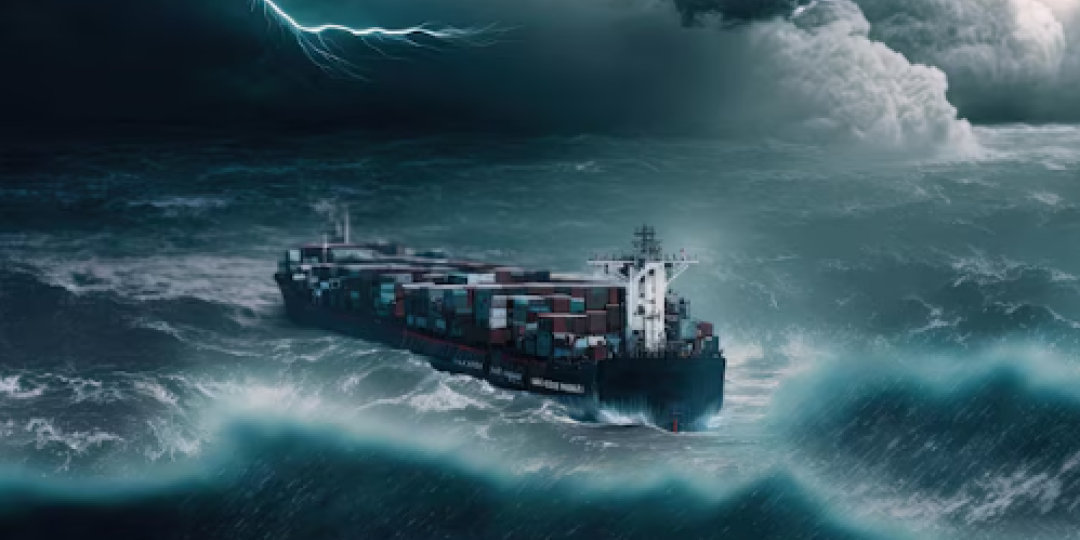The impact of weather-related events on ocean cargo will be one of the main topics at the International Union of Marine Insurance’s (IUMI) annual conference in Berlin later this month.
But the two separate box spill incidents, in which the CMA CGM Belem lost 99 containers in mid-August off the coast of Richards Bay, and the MSC Antonia lost 46 containers less than a fortnight later when it was struck by heavy swells near Port St Johns, is no reason for concern.
According to Horizon Underwriting Managers’ Mike Brews, who chairs IUMI’s Cargo Committee: “It is not unusual for exceptionally extreme weather to cause cargo loss,” and container-overboard incidents should be seen against the backdrop of bigger, likelier risk events.
In the case of South Africa, box spills at sea did not factor into the equation, explained Brews, who also heads up the Association of Marine Underwriters in South Africa (*).
Cargo theft, the insurrectionist unrest that destabilised Durban’s logistics sector in July 2021, and the flooding a year later in which crucial infrastructure was destroyed, had a far greater impact on insurance rates than the recent box spill incidents were likely to have, Brews said.
In the case of last Friday night’s Antonia incident, he said it must be considered that the amount of boxes lost overboard represented less than one percent of the 6 966 TEU vessel’s total capacity.
“Worldwide, the industry moves somewhere in the region of 250 million containers every year, so boxes washing off vessels such as we have seen represent a very small number of total cargo losses globally.”
Will it result in rate increases for shipping insurance? Very unlikely, said Brews.
Considering the tumult of the last few years, rates had gone up, a lot of it being driven by the international market.
“But the last year or so, things have calmed down, and rates have stabilised. So far this year rates have been fairly flat compared with the last three years.”
Brews added that at one stage box spills did have an impact on rates.
“To save time and money, vessels used to start unlashing before they even came into the port so that their turn-around times were quicker. As a result, boxes would often get washed overboard if you had rogue waves. But the practice of unlashing too soon has been stopped, and we don’t see the same frequency of cargo lost overboard any more.”
As for lashing and the notion that containers were often not properly secured, Brews said it should be measured against the efficacy of containers that were securely tied down on vessel decks or quay stacks – the latter by far exceeding the former.
Nevertheless, calamitous weather events, such as bombogenesis, in which temperature extremes cause violent swells, have become a major concern and are something the maritime industry must learn to accept and adopt into clever navigation.
He said it had been determined that the MSC Antonia was in a part of the ocean known for weather systems causing havoc.
“The most recent box spill was a case of things coming together that created a perfect storm in which a vessel happened to find itself. Had it sailed closer to the coast or further out to sea, it would probably have avoided what happened.”
As opposed to allowing it to have an effect on insurance, he said it would be more useful to focus on improved training and knowledge of localised areas where liners were likely to run into stormy weather.
Brews explained that the insurance industry tended to look at events that occurred in five-year cycles leading up to bigger events every 50 years.
He reiterated that the Durban riots had had a major impact on cargo insurance relative to South Africa, completely overshadowing the recently seen box spills.
“You have to account for catastrophic events and the recent cargo losses are small in the bigger scheme of things.”
* Mike Brews has since stated that he no longer heads up AMUSA, and that the position is currently held by Mervyn Naidoo of Old Mutual Insure. He's still serving on the committee. Freight News regrets the error.













